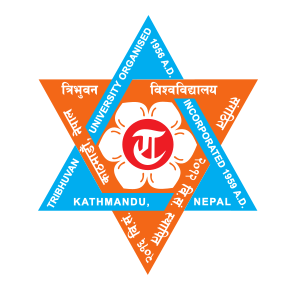Overview
The Central Department of Microbiology (CDM) at Tribhuvan University has been at the forefront of microbiological education for the past 25 years. Established on November 14, 1990, the department introduced the master's program, a significant milestone in producing competent microbiologists within Nepal.
The department's humble beginnings were in a building that once housed Peace Corps volunteers within the Tribhuvan University premises in Kirtipur. Late Professor Dr. Sheetal Raj Basnyat served as the first head of the department, and subsequent faculty members, including Prof. Dr. Achyut Prasad Sharma, contributed to its growth. Esteemed visiting faculties such as Prof. Dr. Tika Bahadur Karki, Prof. Dr. Bharat Mani Pokharel, Dr. Madav Prasad Baral, Prof. Dr. Kayo Devi Yami, Ms Jyotsna Shrestha, and Dr. Ajudaya Shrestha also made valuable contributions to teaching and laboratory skills. Interestingly, Prof. Dr. Anjana Singh and Prof. Dr. Dwij Raj Bhatta, who are currently faculty members, were students of the first batch.
The curriculum initially included subjects like General Microbiology, Clinical Microbiology, Pharmaceutical Microbiology, Food Microbiology, Agricultural Microbiology, Microbial Biochemistry, Biostatistics, Microbial Biotechnology, and Environmental Microbiology. During the second year, students engaged in diverse research fields for their dissertations.
Impressively, within three years of its establishment, graduates of the first batch were qualified to teach the master's program. Prof. Dr. Anjana Singh, Prof. Dr. Dwij Raj Bhatta, Prof. Dr. Bidya Shrestha, and Dr. Rajan Prasad Adhikari, all graduates of the first batch, joined the teaching faculty. Dr. Surya Prasad Manandhar, a skilled biochemistry teacher, also became a faculty member.
In 1999, the course underwent amendments to align with the newly introduced three-year bachelor's program. The master's course offered subjects like Microbial Structure Physiology and Genetics, Epidemiology, Immunology and Biostatistics, Biochemistry, Total Quality Management and Quality Assurance, and Instrumentation and Biotechnology. Specialized groups were introduced in the second year, with options available in Environmental Microbiology and Medical Microbiology. Prof. Dr. Shreekant Adhikari served as the acting head of the department during this period.
In 2001, the department relocated to a newly constructed building, which provided more space and modern equipment like Atomic Absorption Spectrophotometer, Amino Acid Analyzer, Spectrophotometer, PCR Thermocycler, and UV Transilluminator. Dr. Prakash Ghimire served as the head of the department at that time.
Over the years, the Central Department of Microbiology has witnessed a growing interest in the field, gaining a reputation as a popular discipline in biological sciences. Initially admitting 25 students, the department increased its maximum enrollment number twice, reaching 40 students.
Beyond teaching, the department has been actively conducting workshops and talk programs. Renowned scientists and experts from both national and international institutions have been invited as speakers. Notably, Fulbright professor Prof. Dr. Ronald H Bauerle from the University of Virginia made a significant contribution to the department in 2005. He introduced molecular biology techniques in laboratory classes and research, donating laboratory equipment, molecular biology experiment kits, and books. Other visiting scholars, including Dr. Cindy Coffil from Canada and Dr. Sean Cleary and Dr. Alenka H. Rajojdic as Fulbright scholars, also made valuable contributions.
The curriculum underwent revisions in 2008 and 2009, focusing on research-based teaching and learning practices. The introduction of the semester system in 2013 aimed to elevate the department's standards to international levels and promote research in line with current advancements in microbiology. Each year, 30 students are enrolled under the semester system.
The students and faculty members of CDM have been actively involved in various activities, including volunteering to help earthquake-damaged areas and assessing drinking water quality to prevent post-earthquake waterborne diseases. The Microbiology Student Association of Nepal (MISAN), a student organization, has played a pivotal role in organizing inter-college quiz contests, journal club competitions, exhibitions, and sports activities.
The department's research work has been diverse, ranging from clinical samples and associated pathogenic microorganisms to environmental samples, including those from the Everest base camp and hot springs. Microbes associated with indigenous food and their potential consequences have also been studied. Moreover, the department has conducted extensive research on microorganisms' impact on the environment and the quality of water and air. To promote joint research and collaboration, CDM has signed memorandums of understanding with various hospitals, institutes, and research centers.
Despite its humble beginnings, the Central Department of Microbiology has grown exponentially, graduating over 500 master's students and five PhD students. Its graduates now teach and conduct research in various national and international institutions, holding reputable positions in government organizations. Looking ahead, the department aims to produce even more competent microbiologists and continue serving the realm of microbiology with excellence.
Central Department of Microbiology: Pioneering Advanced Microbiology Education
The Central Department of Microbiology at Tribhuvan University stands as a pioneering institution, offering advanced level education in Microbiology in Nepal. As the first and only department of its kind in the country, it plays a crucial role in shaping the future of microbiological research and education.
The department offers both Master's and Ph.D. degrees in Microbiology, providing students with comprehensive knowledge and expertise in this field. With a strong emphasis on research-based learning, students are equipped with the necessary skills to excel in scientific research or applied research areas within Microbiology.
Since its establishment, the department has witnessed remarkable growth, with 600 students successfully completing their M.Sc. degrees in Microbiology. This achievement is a testament to the department's commitment to delivering high-quality education and producing competent microbiologists who can contribute to the field.
In addition to the Master's program, the department also offers a Ph.D. program, allowing students to further their research and make significant contributions to the field of Microbiology. To date, five students have successfully completed their Ph.D. degrees, furthering the department's reputation as a center of excellence in microbiological education.
The faculty members of the department are highly qualified and experienced, ensuring that students receive a comprehensive and up-to-date education. They provide guidance and mentorship to students throughout their academic journey, fostering an environment of growth and intellectual curiosity.
The Central Department of Microbiology serves as a hub for microbiological research and innovation. Through collaborative efforts with various institutions, hospitals, and research centers, the department actively promotes joint research and mutual assistance, fostering a vibrant research community within the field of Microbiology.
As the department continues to evolve and expand, it remains committed to producing highly skilled microbiologists who can contribute to the advancement of scientific knowledge and address pressing challenges in healthcare, agriculture, environmental conservation, and other areas impacted by microbiology.
With a track record of excellence and a dedication to promoting research, the Central Department of Microbiology is poised to continue its legacy as a leading institution in microbiological education in Nepal.















